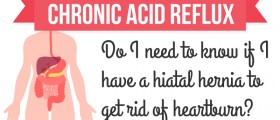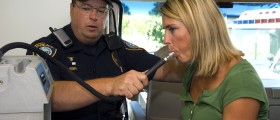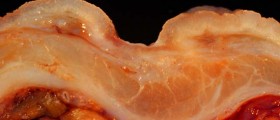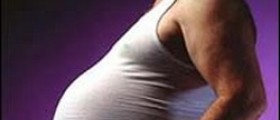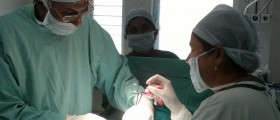I was diagnoised with a hiatal hernia, but were still doing a bunch of test to try and find out why I'm have sever pain when I eat. On Monday I'm going in to do a berium swallow and I read on there that it looks for a what type of hiatal hernia you have. But I was wondering if anyone knows if they have been through this if a hiatal hernia would cause severe pain after I eat. Any help I would appreciate
Loading...
Dear Jew hello,
Hope you get well soon .
Can you pls tell me how you were diognised for hiatal hernia? And pls advise where and how is your pain located??Isit while you eat or after you eat??
I have back pain while Iswallow anything. Had the barium swallow and showed nothing.
Now the doctors are suggesting to do endsocopy :(:(
Loading...
I had an endonosopy done. I get sever pain after I eat. Today they did a barium swallow and I have to wait for the test results. Did you have to swallow a pill with your barium swallow? My pain is in my stomach mostly but I also get it in my upper back.
Loading...
Dear Jew hello,
So your hiatal hernia was diagnosed with the endoscopy , right?
Mine is not in my stomach . It is on my left shoulder blade area.
What is the type of your pain ? Can you try to decsribe it to me.
When finishing the swallowing action , mine is on the LEFT side only one sided upper back area and like burning and stinging and like somebody is touching with a knife . Ialso have it without eating anything but it intensifies with swallowing . Even now when I swallow my saliva .
Ionly did barium swallow not endoscopy .
Did your test results come from barium ?
So your hiatal hernia was diagnosed with the endoscopy , right?
Mine is not in my stomach . It is on my left shoulder blade area.
What is the type of your pain ? Can you try to decsribe it to me.
When finishing the swallowing action , mine is on the LEFT side only one sided upper back area and like burning and stinging and like somebody is touching with a knife . Ialso have it without eating anything but it intensifies with swallowing . Even now when I swallow my saliva .
Ionly did barium swallow not endoscopy .
Did your test results come from barium ?
Loading...
Hi, i have exactly the same problem with you but mine is on right side... as you said even saliva hurts that spot or the action of swallowing maybe... its been almost 1.5 years now... did you find some answer or a solution??
Loading...
Health Hero
1626 posts
Hello, guest.
Here are a few general tips that may help alleviate some symptoms of a hiatal hernia:
(1) Lifestyle changes: Making certain lifestyle modifications can help manage symptoms. This may include eating smaller, more frequent meals, avoiding foods that trigger symptoms (such as spicy or fatty foods), maintaining a healthy weight, and avoiding lying down or going to bed shortly after eating.
(2) Elevating the head of your bed: Placing blocks or risers under the head of your bed can help reduce symptoms, as it helps keep stomach acid from flowing up into the esophagus.
(3) Medications: Over-the-counter antacids or prescription medications such as proton pump inhibitors (PPIs) may help reduce stomach acid production and alleviate symptoms. However, it's important to consult with a healthcare professional before starting any new medication.
(4) Avoiding triggers: Identify any specific triggers that worsen your symptoms, such as certain foods, smoking, or alcohol, and try to avoid them.
Have you had any check-ups in the meantime? What did doctors told you?
Here are a few general tips that may help alleviate some symptoms of a hiatal hernia:
(1) Lifestyle changes: Making certain lifestyle modifications can help manage symptoms. This may include eating smaller, more frequent meals, avoiding foods that trigger symptoms (such as spicy or fatty foods), maintaining a healthy weight, and avoiding lying down or going to bed shortly after eating.
(2) Elevating the head of your bed: Placing blocks or risers under the head of your bed can help reduce symptoms, as it helps keep stomach acid from flowing up into the esophagus.
(3) Medications: Over-the-counter antacids or prescription medications such as proton pump inhibitors (PPIs) may help reduce stomach acid production and alleviate symptoms. However, it's important to consult with a healthcare professional before starting any new medication.
(4) Avoiding triggers: Identify any specific triggers that worsen your symptoms, such as certain foods, smoking, or alcohol, and try to avoid them.
Have you had any check-ups in the meantime? What did doctors told you?
Loading...
Hi Levar thank you for your reply
No i didnt have any check ups... previosly i had 4 ulcer in my stomach and had a gallbladder removal surgery..
But this swallowing problem appearred suddenly
No i didnt have any check ups... previosly i had 4 ulcer in my stomach and had a gallbladder removal surgery..
But this swallowing problem appearred suddenly
Loading...
Health Hero
1626 posts
Hi, again.
For a hiatal hernia and stomach ulcers, there are several lifestyle changes and medications that could help:
1. Avoid foods that can irritate your stomach, such as spicy foods, citrus fruits, and alcohol. Opt for a diet rich in fruits, vegetables, lean proteins, and whole grains.
2. Large meals can distend your stomach and put pressure on the hernia, exacerbating your symptoms. Aim for smaller, more frequent meals.
3. Wait 2-3 hours after meals before lying down or going to bed, as this can help prevent stomach acid from backing up into your esophagus.
4. If you elevate your head about 6-9 inches while sleeping, it will help prevent stomach acid from flowing back into the esophagus.
5. If you're overweight, losing weight can relieve some of the pressure on your stomach and help reduce symptoms.
6. Clothes that are tight around your waist can put extra pressure on your stomach and worsen your symptoms.
As for medications, over-the-counter antacids can neutralize stomach acid and provide short-term relief. H2 blockers and proton pump inhibitors, which reduce acid production, may also be recommended by your doctor. Medications such as sucralfate can coat and protect the lining of your stomach and esophagus, aiding in the healing of ulcers.
Hope something will help you. Best of luck!
For a hiatal hernia and stomach ulcers, there are several lifestyle changes and medications that could help:
1. Avoid foods that can irritate your stomach, such as spicy foods, citrus fruits, and alcohol. Opt for a diet rich in fruits, vegetables, lean proteins, and whole grains.
2. Large meals can distend your stomach and put pressure on the hernia, exacerbating your symptoms. Aim for smaller, more frequent meals.
3. Wait 2-3 hours after meals before lying down or going to bed, as this can help prevent stomach acid from backing up into your esophagus.
4. If you elevate your head about 6-9 inches while sleeping, it will help prevent stomach acid from flowing back into the esophagus.
5. If you're overweight, losing weight can relieve some of the pressure on your stomach and help reduce symptoms.
6. Clothes that are tight around your waist can put extra pressure on your stomach and worsen your symptoms.
As for medications, over-the-counter antacids can neutralize stomach acid and provide short-term relief. H2 blockers and proton pump inhibitors, which reduce acid production, may also be recommended by your doctor. Medications such as sucralfate can coat and protect the lining of your stomach and esophagus, aiding in the healing of ulcers.
Hope something will help you. Best of luck!
Loading...




